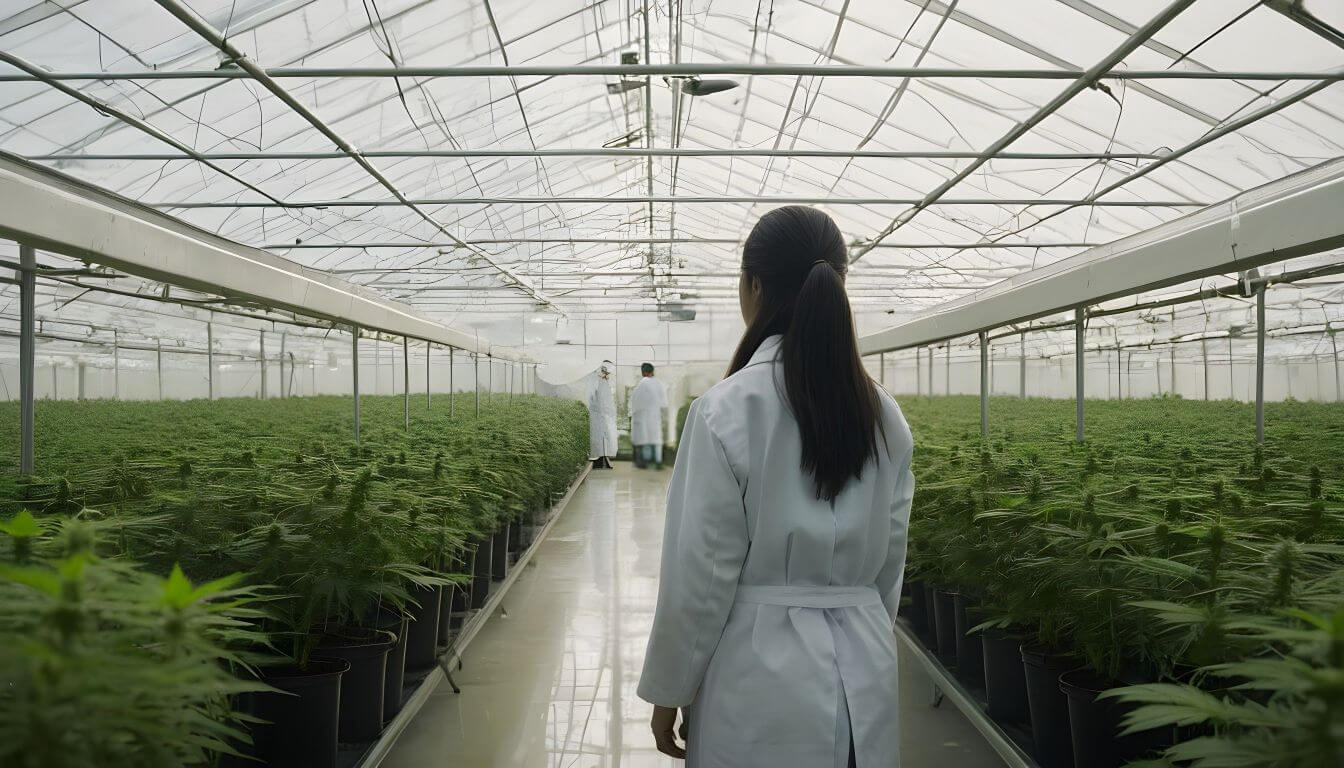The Thai government is set to pass a bill that aims to regulate marijuana use strictly for medical and health purposes, according to Public Health Minister Cholnan Srikaew. This statement comes in response to Prime Minister Srettha Thavisin’s recent remark about adding marijuana back to the list of narcotics.
Anutin Charnvirakul, former public health minister and current leader of the Bhumjaithai Party, had previously campaigned for the decriminalization of marijuana. During the 2019 general election, his party promised voters that they would ensure marijuana is decriminalized so it could be used for medical treatment, as an ingredient for health products, and as a potential cash crop for the country.
Regulating marijuana use in line with international conventions
In a recent interview, Cholnan said, “Since marijuana is not a drug, there should be a law regulating it in line with the Single Convention on Narcotic Drugs of 1961 that says countries that do not criminalize marijuana should enact a law to regulate it.” This convention was designed to control the production, manufacture, and distribution of narcotics internationally, all while allowing their use for medical and scientific purposes.
The proposed bill intends to comply with this convention by strictly limiting the use of marijuana to medical and health-related contexts only. According to the new legislation, anyone caught using marijuana for purposes other than these will face penalties.
Licensing and control measures under the new bill
The bill does not provide easy access to marijuana. Instead, it lays out several licensing and control measures to ensure its use remains strictly regulated. For instance, only authorized institutions, medical professionals, and patients with prescriptions will be allowed to access and use marijuana for medical and health purposes.
Growing marijuana for personal use will remain illegal under the new bill, as it will not be considered an authorized institution. The Thai government’s proposed legislation seeks to find a balance between providing adequate opportunities for the research, development, and implementation of marijuana-based healthcare solutions while minimizing the potential for abuse and illicit activities related to cannabis cultivation and distribution.
Connecting local communities with the benefits of marijuana
The new bill on regulating marijuana does not solely focus on restricting its use but also aims to create a sustainable business ecosystem around this plant. The goal is to provide local communities with opportunities to grow and use marijuana strains traditionally found in their region responsibly. In turn, this may serve as a source of income and contribute to the national economy.
Additionally, the bill proposes a plan for developing traditional medicine practitioners, who will work closely with local communities in preserving and advancing traditional knowledge relating to the therapeutic properties of marijuana. This approach recognizes the historical importance and traditional uses of marijuana throughout Thailand while striving to preserve these valuable practices for future generations.
Economic and social impact of regulating marijuana
Regulating marijuana has the potential to bring about significant economic and social change in Thailand. Notably, the legalization of cannabis for medical and health purposes could become a major driver of health tourism in the country. International interest surrounding medical marijuana treatments remains high, and with proper regulation and management of this burgeoning industry, Thailand could position itself as a prime destination for tourists seeking alternative therapies.
Furthermore, opening up the cultivation, manufacture, and distribution of marijuana to local communities would help spur economic growth at the grassroots level. Farmers will be able to grow cannabis as a cash crop, providing much-needed income for rural areas of the country. Commercial production of marijuana-based health products could also benefit local communities by creating job opportunities and fostering collaborations between traditional practitioners and modern pharmaceutical companies.
A cautious approach towards progress
The Thai government’s move to regulate marijuana use for medical and health purposes signifies a shift in attitudes towards this plant. However, it is essential to remember that the introduction of this legislation aims to control and monitor marijuana usage rather than promote recreational smoking.
By striking a balance between preserving Thailand’s rich cultural heritage surrounding marijuana and advancing healthcare using this valuable resource, the proposed bill seeks to create a sustainable future for medical marijuana in Thailand.





